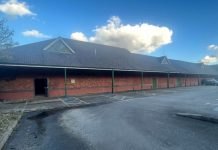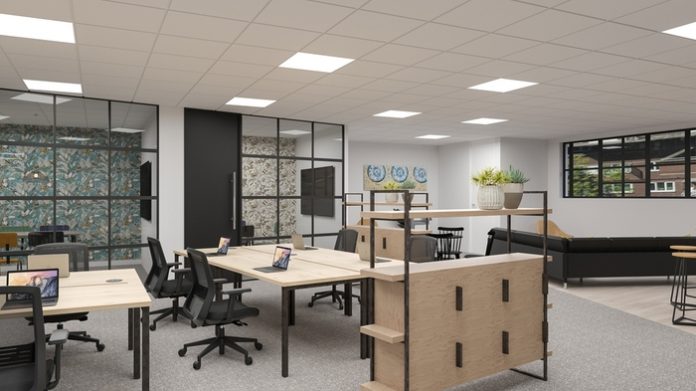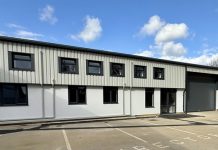Flexible co-working space is a key growth area for commercial offices in Southampton and Hampshire, according to global property consultants JLL, with a raft of new facilities due to open in early 2019.
Major new shared working facilities coming to the city centre at the start of next year include Network – 12,500 sq ft of space for up to 70 co-workers in the creative and digital sectors in the Marlands Shopping Centre, along with SO Fourteen, which will offer fixed, flexi and hot desk options for up to 44 people on 3,500 sq ft of newly refurbished floors at Woollen Hall on Castle Way.
The growth of smaller, co-working space is captured in office take up figures for the city. JLL has seen a 20% decrease in take up over 5,000 sq ft with 51,379 sq ft transacted this year, compared to 63,104 sq ft in 2017. An increase in smaller deals, often for shared and co-working space, accounts for the reduction in larger space lettings.
The new co-working facilities are in addition to two Regus centres, Arena Business Centre and Enterprise House in the city centre, offering a range of co-working space from unreserved hot-desks to permanent, assigned spaces along with a range of other facilities in the region.
New shared work space has also just opened above Coffee Lab on Southampton’s High Street, offering 11,000 sq ft of co-working and office space in the heart of the city’s shopping quarter with 7,000 let to an anchor tenant.
JLL has published new research showing how the flexible office space market, or ‘flex space’, has more than doubled in size across Europe since 2014 and is predicted to grow by up to 30% per year over the next five years.
This new national report, Disruption or Distraction outlines the main drivers of the sector’s boom – including evolutionary changes in how, when and where people work, shifts in lifestyle, and rapid advancements in technology – and provides unique insights into the risks and rewards for both companies occupying the space and property investors.
The growing popularity of co-working space has also given rise to a new hybrid commercial space product. Conventional landlords are in some cases offering fully fitted-out office space with telecoms cabling, broadband and high spec interior design, ready for companies to move into, rather than the conventional model of occupiers taking a lease and then carrying out their own fit-out.
Nella Pang, director in JLL’s Southampton office, says co-working space is here to stay:
“It’s been pretty staggering to see the shift in the Southampton market – and the exciting expected arrival of lots of new players on the scene in 2019. And whilst it has its practical challenges for business, it’s definitely more than a fad.
“Flexible work space offers businesses, from start-ups and freelancers to major companies and international corporates, bright, open places where people work, meet, network and collaborate.
“We expect to see many more landlords refurbishing to offer a combination of traditional and flexi co-working space. It’s also really encouraging to see Southampton City Council leading the way in re-imagining former retail space to offer contemporary co-working facilities such as Network.
“The traditional offices market is playing catch up and the irony is that many younger businesses and start-ups have actually been pushed into taking flexible co-working space because conventional premises have stuck to rigid terms. If they haven’t had three years’ worth of accounts, equivalent of 3-6 months’ rent deposit or the ability to commit to a long-term lease, then conventional office space has remained out of reach to many. The market has certainly woken up to that, with investors and owners becoming much more creative and flexible in their approach.”
Dan Brown, head of flex space, EMEA, JLL, commented:
“The rise of flex space is resulting in one of the biggest shifts across the real estate industry that we’ve ever seen. The consumerisation of real estate, which we’ve already witnessed in hospitality and retail, is reshaping business models and investment strategies alike. Our research shows how different markets and different companies are moving at varying speeds, and as the dramatic growth showing no signs of slowing, companies, investors and developers must keep on top of the evolution to understand what this means for their specific business ambitions.”






















